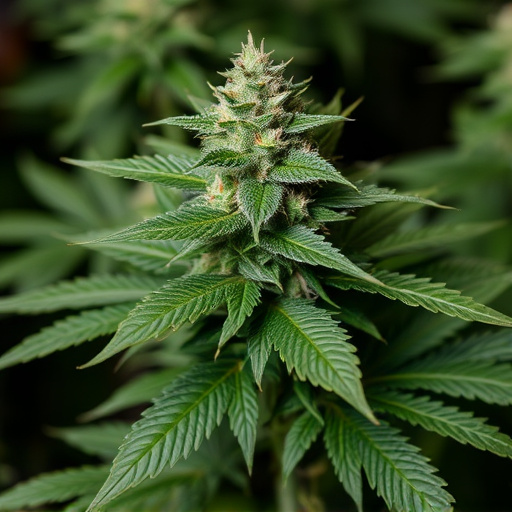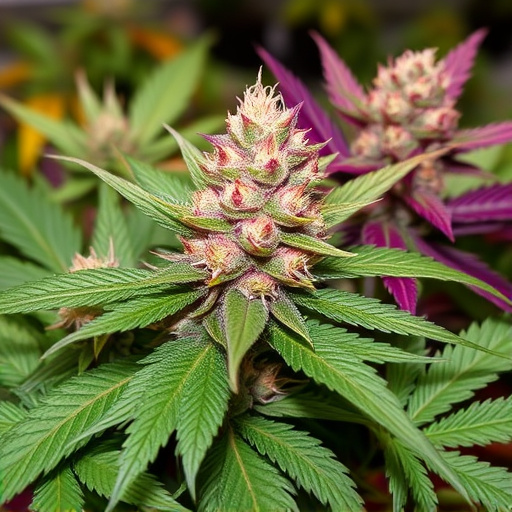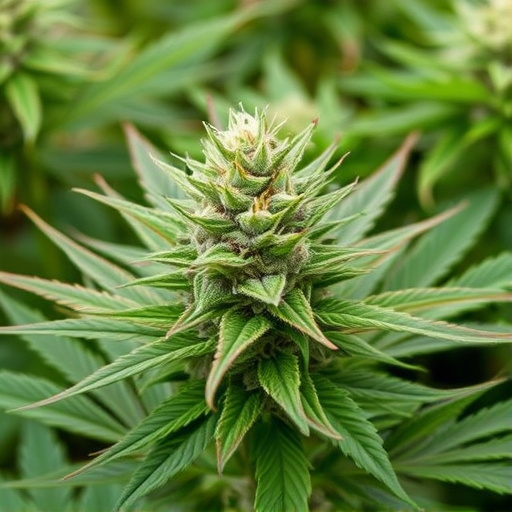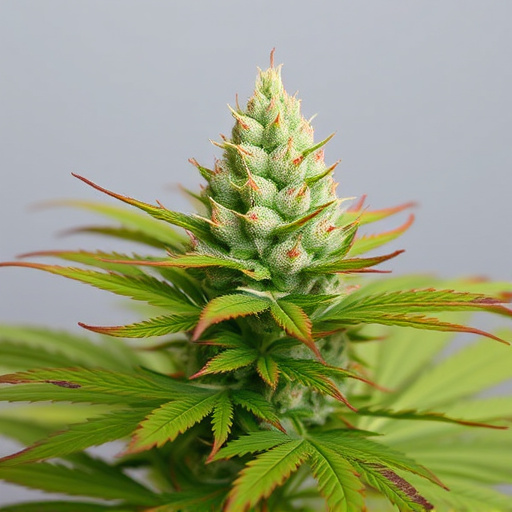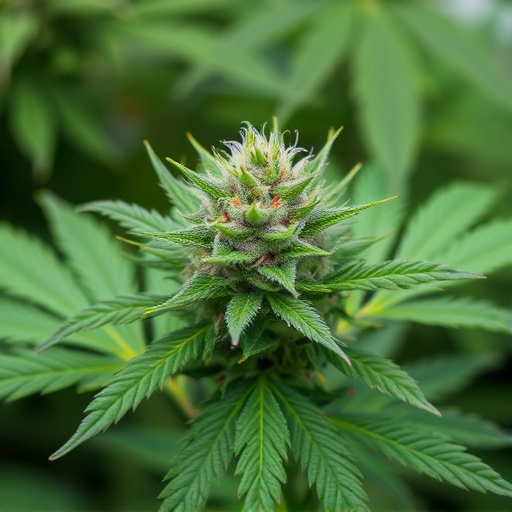The potency and effectiveness of cannabis strains are significantly influenced by nutrition, often overlooked yet crucial. Cannabis plants require specific amino acids, vitamins (e.g., omega-3), and minerals for optimal growth and cannabinoid production, including THC and CBD. Adequate levels of nitrogen, phosphorus, and potassium support overall health while ensuring energy is directed towards these compounds. Proper diet can intensify cannabis effects; a balanced intake enhances user experience and therapeutic benefits. Understanding these dietary connections allows users to optimize consumption, tailoring choices to desired outcomes from cannabis strains and their effects.
“Enhance your cannabis experience or simply curious about its potency? Discover how nutrition plays a surprising role in the strength of cannabis strains. This article delves into the science behind diet’s impact on THC and CBD production, exploring popular beliefs and separating fact from fiction regarding specific ‘enhancing’ foods. Learn practical tips to maximize effects without relying on myths, ensuring a balanced approach to your cannabis consumption.”
- The Role of Nutrition in Cannabis Potency
- – Exploring the impact of diet on cannabis strength and effectiveness.
- – Discussing essential nutrients and their effects on plant growth and THC/CBD production.
The Role of Nutrition in Cannabis Potency

The relationship between nutrition and cannabis potency is an intriguing aspect often overlooked in discussions about cannabis use. While the primary focus tends to be on genetics and cultivation methods, proper nutrition can significantly influence the final product’s strength and effects. Cannabis plants, like any other organism, require specific nutrients to thrive and produce their desired compounds.
A well-balanced diet for cannabis plants includes essential amino acids, vitamins, and minerals. Certain nutrients play a crucial role in enhancing the production of cannabinoids like THC and CBD. For instance, sufficient levels of nitrogen, phosphorus, and potassium support overall plant growth and development, ensuring that energy is directed towards the production of these desirable compounds. Additionally, some studies suggest that specific dietary supplements can even intensify the effects of cannabis strains and their perceived potency, as the right nutrition allows plants to reach their full potential.
– Exploring the impact of diet on cannabis strength and effectiveness.
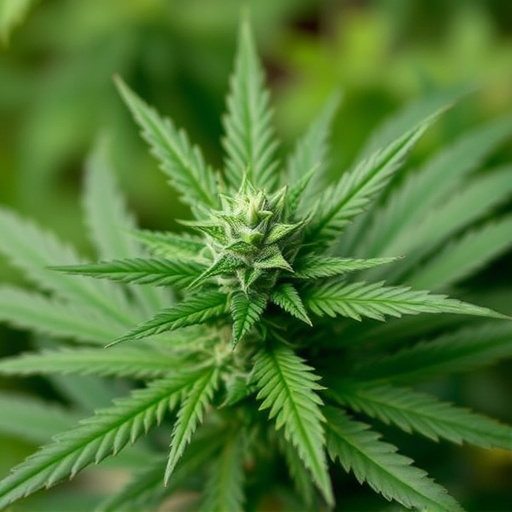
Many cannabis enthusiasts often wonder if there’s a connection between their diet and the potency of the plant they consume. While the primary factors affecting cannabis strength remain consistent—such as genetics, cultivation methods, and curing processes—the role of nutrition is an intriguing aspect that deserves attention. Some studies suggest that specific dietary choices can indeed influence the overall effects and potential strength of cannabis strains and effects.
Certain nutrients found in food, like healthy fats, vitamins, and minerals, may enhance or alter the way cannabinoids interact with our bodies. For instance, omega-3 fatty acids have been linked to improved cognitive function and potentially enhanced THC absorption. Additionally, a well-balanced diet could contribute to overall health, making individuals more receptive to cannabis’s therapeutic effects. Exploring these dietary connections can help users make informed choices about their consumption habits, maximizing the desired outcomes from different cannabis strains and effects.
– Discussing essential nutrients and their effects on plant growth and THC/CBD production.
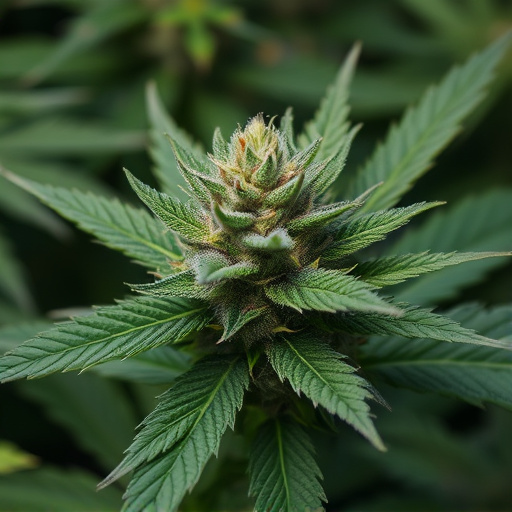
Cannabis plants, like any other, require a balance of essential nutrients for optimal growth and development. Certain nutrients play a pivotal role in enhancing the production of key compounds responsible for the cannabis strains’ effects, such as tetrahydrocannabinol (THC) and cannabidiol (CBD). For instance, nitrogen is crucial for overall plant health, promoting robust leafy growth. However, timing and quantity are critical; excessive nitrogen can dilute THC levels. Phosphorus, another vital nutrient, contributes to strong root development, enabling better absorption of other essential elements, which in turn can positively influence cannabinoid synthesis.
Additionally, certain micronutrients like magnesium and iron play a significant role in the plant’s ability to produce robust cannabis strains. Magnesium is essential for enzyme function, helping to facilitate chemical reactions that contribute to THC and CBD production. Iron ensures efficient transportation of oxygen and other nutrients, supporting overall plant vitality and potentially enhancing the concentration of desired compounds. Understanding these nutrient-compound relationships can help cultivators optimize their growing conditions, leading to higher quality and more potent cannabis strains.
In conclusion, the role of nutrition in cannabis potency cannot be overlooked. Certain foods can indeed influence the strength and effectiveness of cannabis strains, as seen through their impact on plant growth and cannabinoid production. Understanding the interplay between diet and cannabis can help users optimize their experiences, enhancing both the effects and enjoyment of various cannabis strains. By incorporating nutrient-rich foods into their routines, individuals can potentially unlock a fuller spectrum of benefits associated with these natural remedies.






